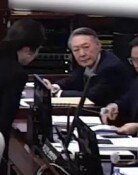North, U.S.: Finding Mutual Ground?
North, U.S.: Finding Mutual Ground?
Posted January. 24, 2007 06:20,
It was reported that North Korea and the U.S., both of which never seem to take any step back after the Norths second nuclear crisis in October 2002, have agreed on the principle of slightly backing down.
Diplomatic sources from Washington said on January 22, North Korea and the U.S. have created an atmosphere to agree upon small issues by mutually backing down. It can be interpreted to mean that their strategy is to grasp each others positions by settling on some trivial issues amid the mutual deep-rooted mistrust, which is continuing to make major negotiations difficult.
North Koreas chief negotiator Kim Kye Gwans positive response after the DPRK-U.S. consultations supports such an atmosphere. He said on January 21 at a Russian airport, We [North Korea and the U.S.] reached an agreement, so North Korea is happy about it.
Slightly Backing Down
The South Korean government has consistently said, There is nothing new on the menu of the agenda to be exchanged at the six-party talks. They just cook with the existing ingredients. In this vein, the small gift package exchanged between the U.S. and North Korea has become a known fact.
The Norths request is to lift financial restrictions against it at the Banco Delta Asia (BDA) in Macao. North Korean Foreign Minister Baek Nam Soon, who died last year, said, North Korea cannot show up at the negotiating table with the sanctions underway.
The U.S. has completely disregarded this. Even after the South Korean governments hard-thought proposal at the end of 2005 to lift sanctions on partial legitimate funds, the U.S. ignored it, saying, There is no priority in funds.
However, most Washington sources say the U.S. is showing a different attitude this time. Professor Don Oberdorfer said, I visited the U.S. Treasury Department, and they explained that top officials are mulling over how to prioritize the funds. And yet, hawks in the U.S. reportedly are opposed to the idea, saying, It damages the Bush administrations principles. Thus, it is too early to view the status quo as a final agreement.
The favor the North will deliver to the U.S. is to halt the operation of its 5MW reactor in Yongbyon, North Korea. It is one of the prerequisites the U.S. dubbed as the early harvest at the six-party talks held in December. Other sources said, Nothing has been determined yet, but ways to identify the suspension of operations could be included.
Any Changes in the U.S.s Tactics or Thoughts?
What the U.S. and the North have in mind needs to be closely watched because the September 19th agreement, which was painstakingly reached at the six-party talks in 2005, turned out to be futile. That was due to differences in interpretation surrounding the timing of discussion for the light water reactors the U.S. was to give to North Korea. Although signed the day before, on the next day, North Korea and its tripartite neighbors, South Korea, the U.S. and Japan, said otherwise.
High-level sources in Washington said, It is hard to say that the domestic politics of the U.S. hardly influences the status quo. In fact, the September 19 agreement was reached at a time when the Bush administration was desperate for achievements due to failing rescue efforts after Hurricane Katrina.
Earlier this year, when South Korean minister Song Min-Soon visited Washington, the officials who accompanied him often mentioned the flexibility of the U.S., a stark difference from the past. However no clear answer has been suggested to the question, Is it the negotiating attitude that has become flexible or is it the U.S.s negotiation principles toward the North? This shows how dubious the U.S. is in whether or not it is willingly accepting the endless nagging demands of North Korea.
srkim@donga.com



![[단독]㈜한화, ‘방산·조선해양·에너지·금융’과 ‘테크·라이프’로 인적 분할](https://dimg.donga.com/c/138/175/90/1/wps/NEWS/IMAGE/2026/01/14/133153661.1.jpg)
![[단독]김경 “1억원 줄때, 강선우도 함께 있었다” 자수서](https://dimg.donga.com/c/138/175/90/1/wps/NEWS/IMAGE/2026/01/14/133148772.5.jpg)


